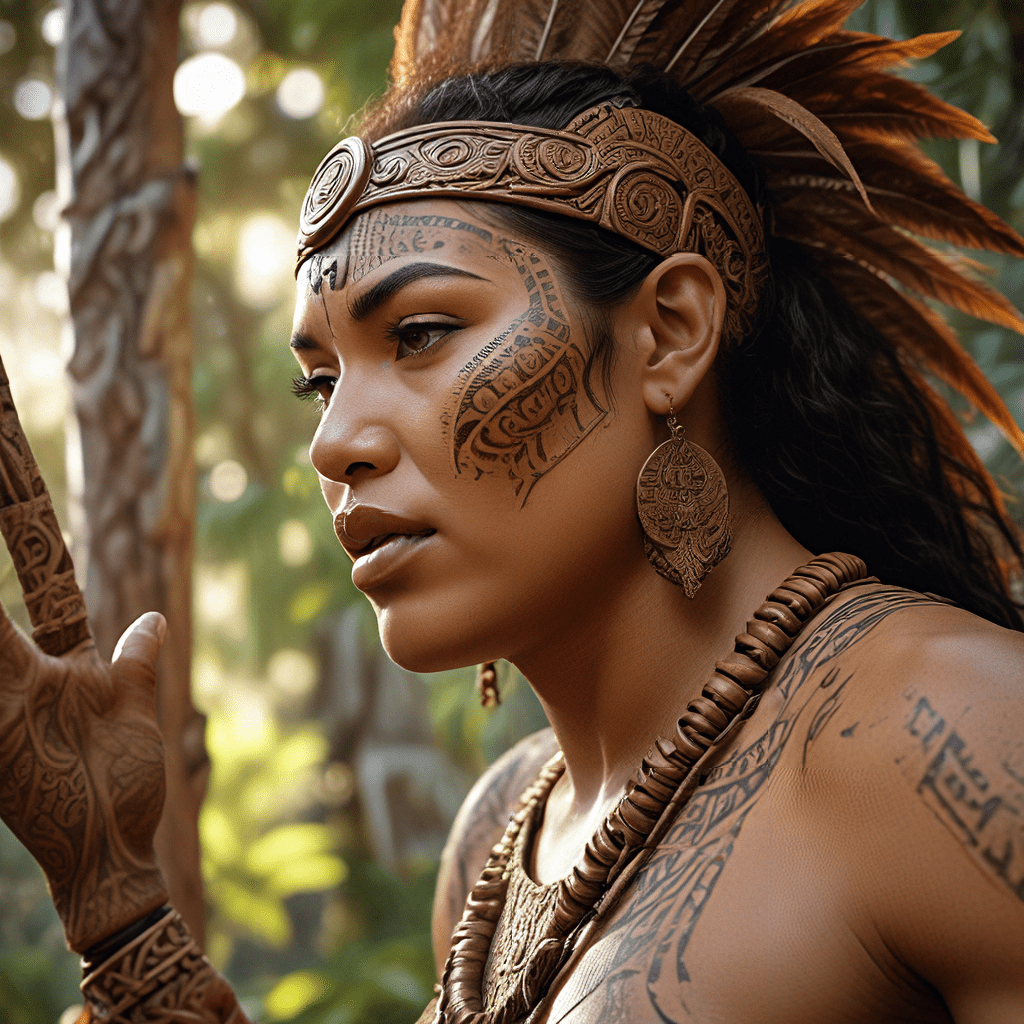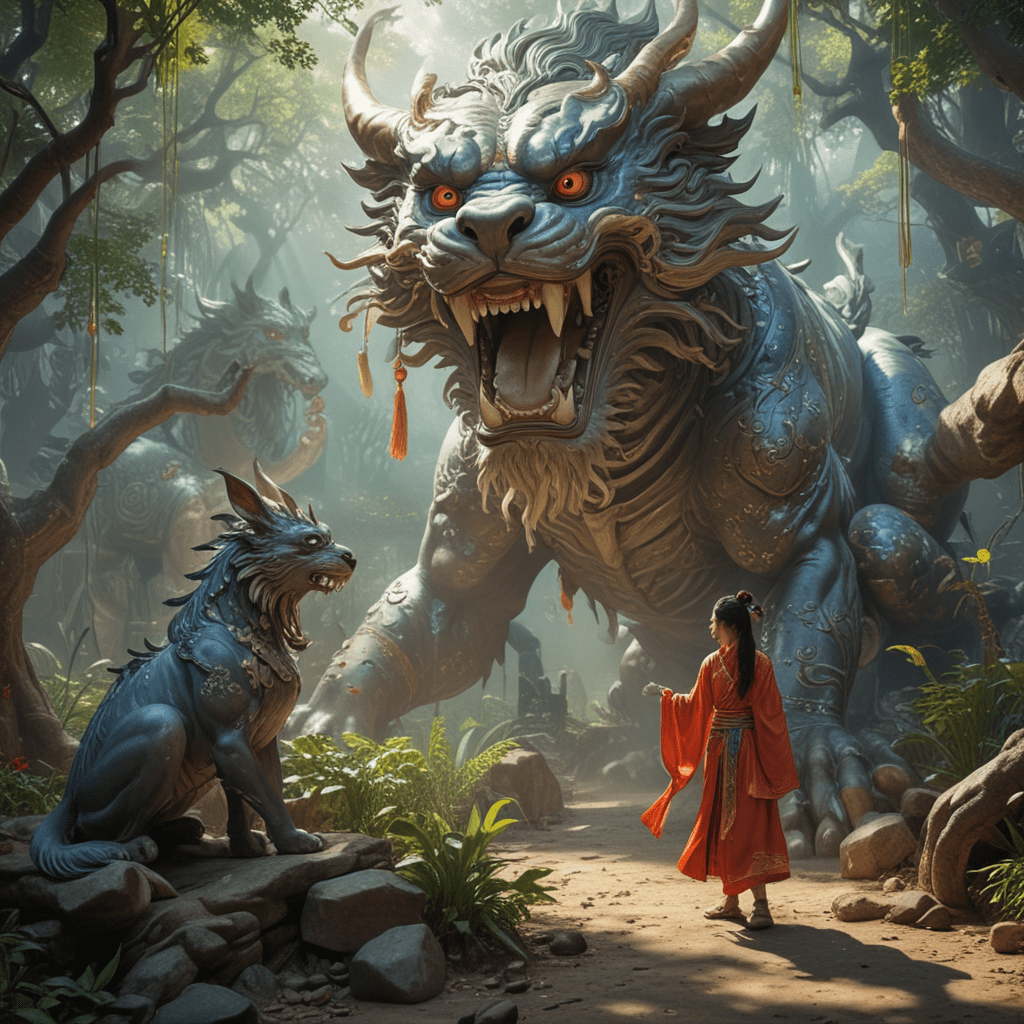Maori Wisdom: Honoring Cultural Traditions
The Maori people of New Zealand have a rich and vibrant culture steeped in mythology and folklore. These stories, passed down through generations, offer profound teachings on respecting cultural traditions, fostering a deep connection with the environment, and upholding a sense of community and social responsibility. Understanding these mythological teachings offers valuable insights into the foundations of Maori culture, allowing us to appreciate their enduring wisdom and relevance in the modern world.
1. The Origin of Humanity and the Importance of Whakapapa (Genealogy)
Maori mythology tells the story of the creation of the world and humanity through the intertwined tales of gods, spirits, and ancestors. According to these stories, the universe was born from the union of Rangi (Sky Father) and Papa (Earth Mother). Their children, including Tane Mahuta (the god of forests), Tangaroa (the god of the ocean), and Haumia (the god of food), separated the sky and earth, eventually leading to the creation of the world as we know it.
Central to Maori cultural understanding is the concept of whakapapa, which translates to genealogy or lineage. Whakapapa is not simply a list of names and dates but represents a comprehensive understanding of ancestry, connecting individuals and communities to their ancestors and the land. It serves as a powerful reminder of the interconnectedness of all things and the importance of respecting the legacy of past generations. Whakapapa emphasizes the responsibility that each individual has to uphold their ancestral heritage and contribute to the well-being of their community and the natural world.
2. The Role of Gods and Spirits in Guiding Cultural Practices
The Maori pantheon is populated by various gods and spirits, each representing different aspects of the natural world and human society. These deities, through their actions and interactions, provide guidance and lessons on how to live in harmony with the environment and each other.
For example, the god of forests, Tane Mahuta, symbolizes the importance of respecting and nurturing the natural world. He teaches the Maori people to care for the trees, the rivers, and the land as a sacred gift from their ancestors. Similarly, the god of the ocean, Tangaroa, reminds the Maori people of the power and majesty of the sea and the need to treat it with respect and reverence.
3. The Significance of Tikanga (Customary Practices) and Tapu (Sacredness)
Tikanga, meaning "customary practices," encompasses the traditional laws, protocols, and values that guide Maori society. These practices are often rooted in mythology and folklore, reflecting a deep understanding of the interconnectedness of all things.
Closely related to tikanga is the concept of tapu, meaning "sacredness". Tapu places restrictions on certain people, places, and objects, recognizing their spiritual significance. Tapu ensures that sacred spaces and objects are treated with respect and reverence, preserving their spiritual power and integrity.
4. The Story of Maui and the Creation of the Land: Embodiment of Respect for the Environment
Maui, a legendary figure in Maori mythology, is celebrated for his cunning and bravery. He is credited with many feats, including fishing up the North Island of New Zealand and slowing down the sun to provide more daylight hours.
The story of Maui and the creation of the land highlights the importance of respecting the environment and living in harmony with nature. It emphasizes the responsibility that humans have to care for the earth and its resources, recognizing their interconnectedness to all living things.
5. The Importance of the Marae (Sacred Ground) and its Role in Preserving Cultural Traditions
The marae is a sacred space in Maori culture, serving as a gathering place for communities, a venue for ceremonies and rituals, and a symbol of ancestral heritage. The marae is a tangible reminder of the importance of preserving cultural traditions and maintaining a strong connection to the past.
The marae plays a vital role in preserving and transmitting knowledge through generations. It serves as a place where stories, songs, and dances are shared, ensuring the continuity of Maori culture and the transmission of its values and wisdom.
6. The Power of Oral Storytelling and the Preservation of Knowledge
Maori mythology is passed down through generations through the power of kōrero, which translates to storytelling. These stories are not simply entertaining tales but serve as a powerful means of preserving cultural knowledge, values, and traditions. Kōrero is a vibrant and interactive process, involving the sharing of stories, songs, and dances, allowing for the transmission of wisdom and cultural understanding across generations.
Through kōrero, the Maori people learn about their history, their ancestors, and their place in the world. These stories offer guidance on how to live a good life, how to interact with the natural world, and how to maintain strong community bonds. The act of storytelling fosters a sense of cultural identity and belonging, uniting the Maori people under a shared heritage.
7. The Concept of Mana (Spiritual Power) and Respecting Hierarchy
Mana is a powerful concept in Maori culture, representing a spiritual energy or force that is inherent in all beings, objects, and places. Mana can be acquired through lineage, achievements, or actions, and it is often associated with leadership, authority, and respect.
The concept of mana reinforces the importance of respecting hierarchy and social order. Mana is passed down through generations, granting elders and ancestors a higher level of respect and authority. This hierarchical structure helps maintain order and stability within the community, acknowledging the wisdom and experience of those who have come before.
8. The Use of Proverbs and Metaphors to Teach Respect for Cultural Values
Maori proverbs, known as whakatauki, are short, memorable sayings that encapsulate cultural wisdom and values. These proverbs often use metaphors and symbolism to convey profound meanings, making them accessible and engaging for all ages. Whakatauki serve as powerful tools for teaching cultural values, promoting ethical behavior, and fostering a deep understanding of Maori worldview.
One well-known proverb, "He waka eke noa" meaning "we are all in this canoe together," highlights the importance of community, cooperation, and collective responsibility. Another proverb, "Ehara taku toa i te toa takitahi, engari he toa takitini" meaning "my strength is not my own, but the strength of many," emphasizes the power of unity and working together towards common goals. Through the use of whakatauki, Maori teachings are passed down through generations, ensuring the continuity of their cultural values.
9. The Impact of Colonialism on Maori Cultural Traditions and the Need for Reclaiming Heritage
The arrival of European colonists in New Zealand had a profound impact on Maori culture. Colonization brought with it new laws, new values, and a new worldview that challenged traditional Maori ways of life. The suppression of Maori language, customs, and beliefs led to a decline in cultural practices and a loss of identity for many Maori people.
In response to this cultural suppression, the Maori people have embarked on a journey of reclaiming their heritage. This process involves revitalizing their language, reviving traditional practices, and reclaiming their land and resources. The revival of Maori culture is not just about preserving the past, but also about ensuring the future of Maori identity and cultural expression.
10. The Relevance of Maori Mythological Teachings in the Modern World: A Call for Respect and Understanding
Maori mythological teachings offer valuable insights into living a fulfilling and meaningful life. The lessons learned from these stories emphasize the importance of respecting the environment, upholding social responsibility, and cultivating a sense of community and belonging. These teachings offer a powerful framework for navigating a world increasingly characterized by globalization, environmental challenges, and social inequality.
The wisdom embedded in Maori mythology calls for a deeper understanding of cultural diversity and the need for respect and understanding across different communities. By learning from the past and embracing the values of wisdom, connection, and sustainability, we can create a more just and equitable world for generations to come.
FAQ
Q: What are some key figures in Maori mythology?
A: Some of the most important figures in Maori mythology include Rangi (Sky Father), Papa (Earth Mother), Tane Mahuta (god of forests), Tangaroa (god of the ocean), Maui (a legendary trickster and hero), and Hina (goddess of the moon).
Q: How do Maori myths reflect their relationship with nature?
A: Maori myths often personify natural elements like mountains, rivers, forests, and the ocean, highlighting the importance of respecting and honoring the natural world.
Q: What is the significance of the marae in Maori culture?
A: The marae is a sacred space used for gatherings, ceremonies, and rituals. It represents the connection to ancestors and the importance of preserving cultural traditions.
Q: How has colonialism impacted Maori culture?
A: Colonialism has had a profound impact on Maori culture, leading to the suppression of their language, customs, and beliefs. However, the Maori people have been working to reclaim their heritage and revitalize their culture.
Q: What is the importance of whakapapa in Maori culture?
A: Whakapapa is the concept of genealogy or lineage, connecting individuals and communities to their ancestors. It emphasizes the importance of respecting the legacy of past generations and upholding ancestral heritage.




